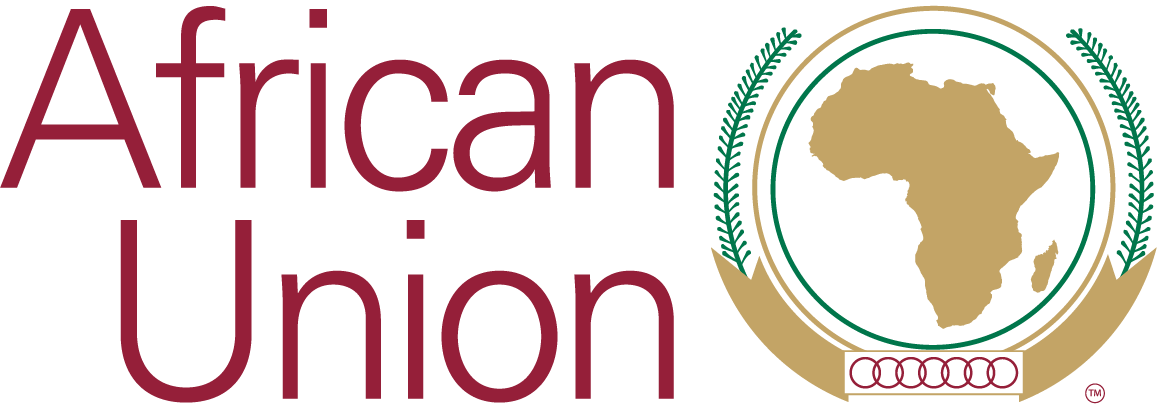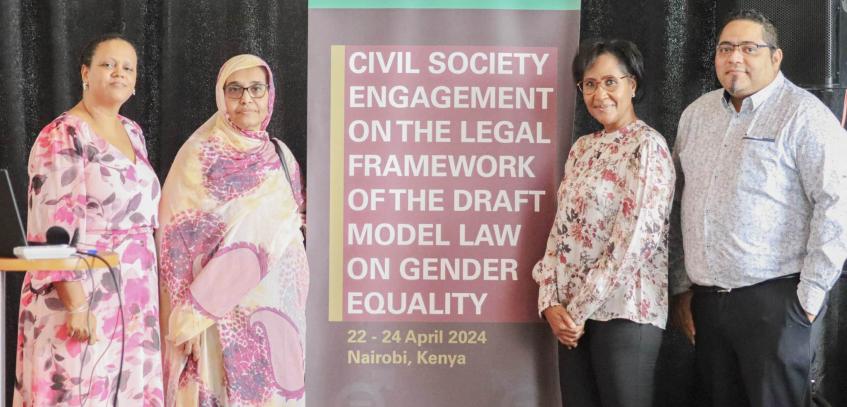In a significant stride towards achieving total gender equality and equity in Africa, the Pan-African Parliament's Permanent Committee on Gender, Family, Youth, and People with Disability, in conjunction with the Economic, Social, and Cultural Council (ECOSOCC), has successfully concluded the second civil society consultation on the Draft Model Law on Gender Equality and Equity.
The recent public hearing process, conducted in Nairobi, Kenya, from 22 to 24 April 2024, marks a decisive phase in the development of a legal and policy blueprint aimed at reshaping gender norms across the continent.
The consultation brought together various key stakeholders, including Members of the Pan-African Parliament Committee on Gender, Family, Youth, People with Disability, and Sport; Pan-African Parliamentarians from the Republic of Kenya; representatives of the African Union Commission; the Economic, Social, and Cultural Council (ECOSOCC); Regional Parliamentary Bodies (ECOWAS, SADC-PF); and Civil Society organizations (CSOs) from the Eastern, Central, Western, and Northern African regions.
The objective of the consultation was to ensure that both the legal and policy framework surrounding the Model Law on Gender Equality and Equity, as well as the draft Model Law itself, incorporate the views and aspirations of the people of Africa, aligning with the mandate of the Pan-African Parliament.
Over the course of three days, discussions centered on key thematic areas to be addressed by the proposed Model Law. This resulted in the formulation of proposals and recommendations for consideration by the Pan-African Parliament Committee on Gender, Family, Youth, and People with Disability, forming the basis of the draft legal and policy framework of the Draft Model Law on Gender Equality and Equity in Africa. These proposals encompassed access to land, education, employment, and equal remuneration; access to justice and equal protection before the law; participation in the political and decision-making processes; health and reproductive rights; and the rights of women in situations of armed conflict, among other pertinent issues.
Hon. Prof. Massouda Laghdaf, First Vice President of the Pan-African Parliament, representing the Bureau, commended all participating organizations and experts for their active engagement and invaluable contributions. She expressed hope to see continued involvement from them in subsequent stages of the formulation of the Model Law on Gender Equality and Equity in Africa.
“We hail the dedication and invaluable insights from the grassroots throughout this process. The engagement seen over the three days of consultation exemplifies the commitment to forging a path toward a more equitable Africa, with gender equality at its core. This landmark initiative promises to be a significant milestone and ensure that gender equality and equity are not just ideals but lived realities for Africans,” said Hon. Prof. Laghdaf.
Hon. Dao Mariam Gabala, Chairperson of the Permanent Committee on Gender, Family, Youth, and People with Disability of the Pan-African Parliament, assured CSOs that the Committee would ensure that all contributions are duly reflected in the final draft of the Model Law before its consideration and adoption by the Plenary of the Continental Parliament.
“As the Model Law on Gender Equality and Equity moves closer to completion, the Pan-African Parliament reaffirms its dedication to crafting legislation that resonates with the needs and ambitions of all Africans. We are now ready to move into the next stage of the development of the Model Law at the Committee level where the document will be reviewed and finalized in preparation for consideration by all the representatives of African citizens in the Pan-African Parliament,” said Hon. Gabala.
Mr. William Carew, Head of the ECOSOCC Secretariat, reiterated the commitment to fostering collaboration between Civil Society organizations and African Union institutions, particularly the Pan-African Parliament, in addressing Africa's most pressing issues.
"It is imperative that we strengthen the synergy between Civil Society and AU bodies, like the Pan-African Parliament, to effectively tackle Africa's challenges. ECOSOCC is proud to have contributed to this process that has enhanced the effectiveness of the policy framework of the Model Law on gender equality and equity, contributing to gender-related endeavors within the African Union,” said Mr.Carew.
The Nairobi consultation, which followed previous engagements in Lusaka in July 2023 for the Southern Region, also played a crucial role in raising awareness and understanding of the Maputo Protocol and its significance in safeguarding women's rights. Adopted by the African Union in July 2003, the Maputo Protocol is a legally binding instrument aimed at promoting and protecting the rights of women in Africa, with a specific focus on gender equality.








